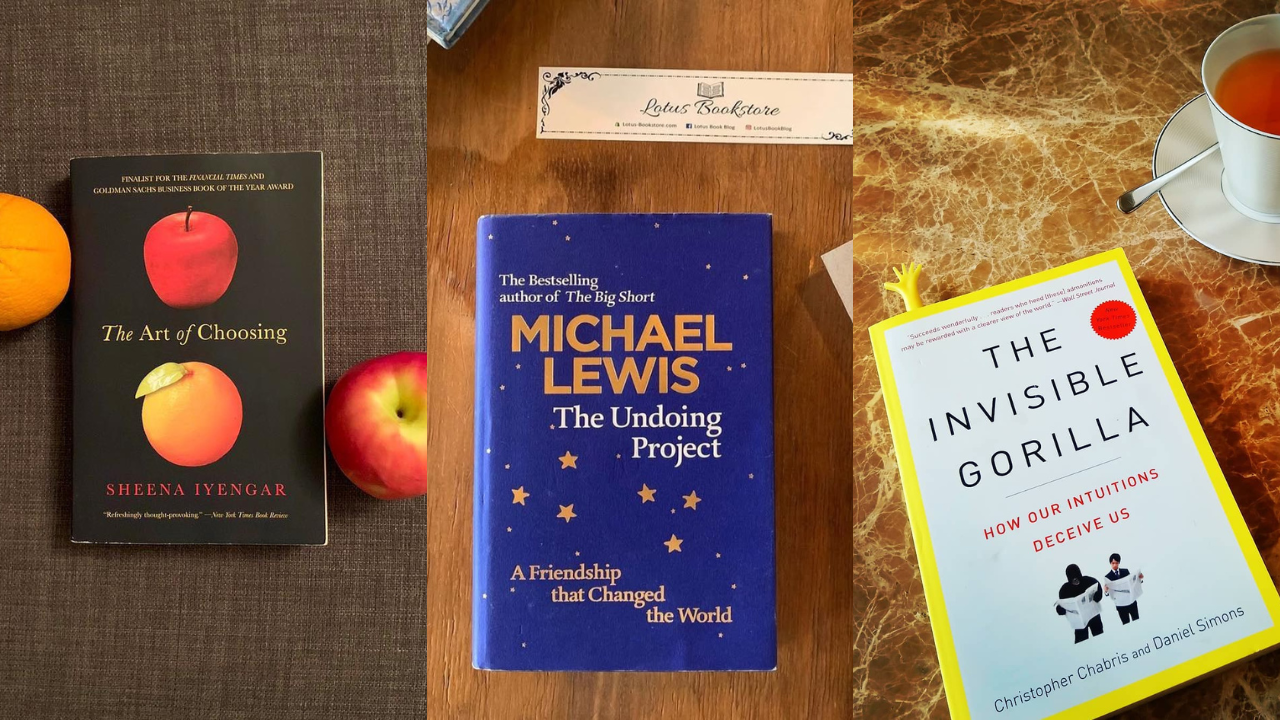
10 Non-Fiction Books That Made Me Rethink Every Decision I’ve Ever Made (Picture Credit – Instagram)
Some books don’t just change how we think — they change how we decide. You pick them up expecting clarity and walk away with questions you didn’t even know to ask. Each of these ten books upended my assumptions, forced me to pause mid-choice, and made second-guessing feel like wisdom rather than weakness. If you’ve ever left a grocery aisle or a life event feeling unsure, these reads will show just how messy and meaningful our decisions truly are.
1. Rethinking Positive Thinking by Gabriele Oettingen
This book shifts the common belief that positivity always leads to success. Gabriele Oettingen introduces the WOOP method — Wish, Outcome, Obstacle, Plan, which is designed to align hope with reality. Instead of urging blind optimism, she explores how positive fantasies can sometimes hinder achievement. Her work, grounded in decades of psychological research, shows why mental contrasting beats motivational mantras. It changed how I visualise goals — no longer with dreamy certainty, but with grounded intentionality and a plan for the hurdles I’ll likely face.
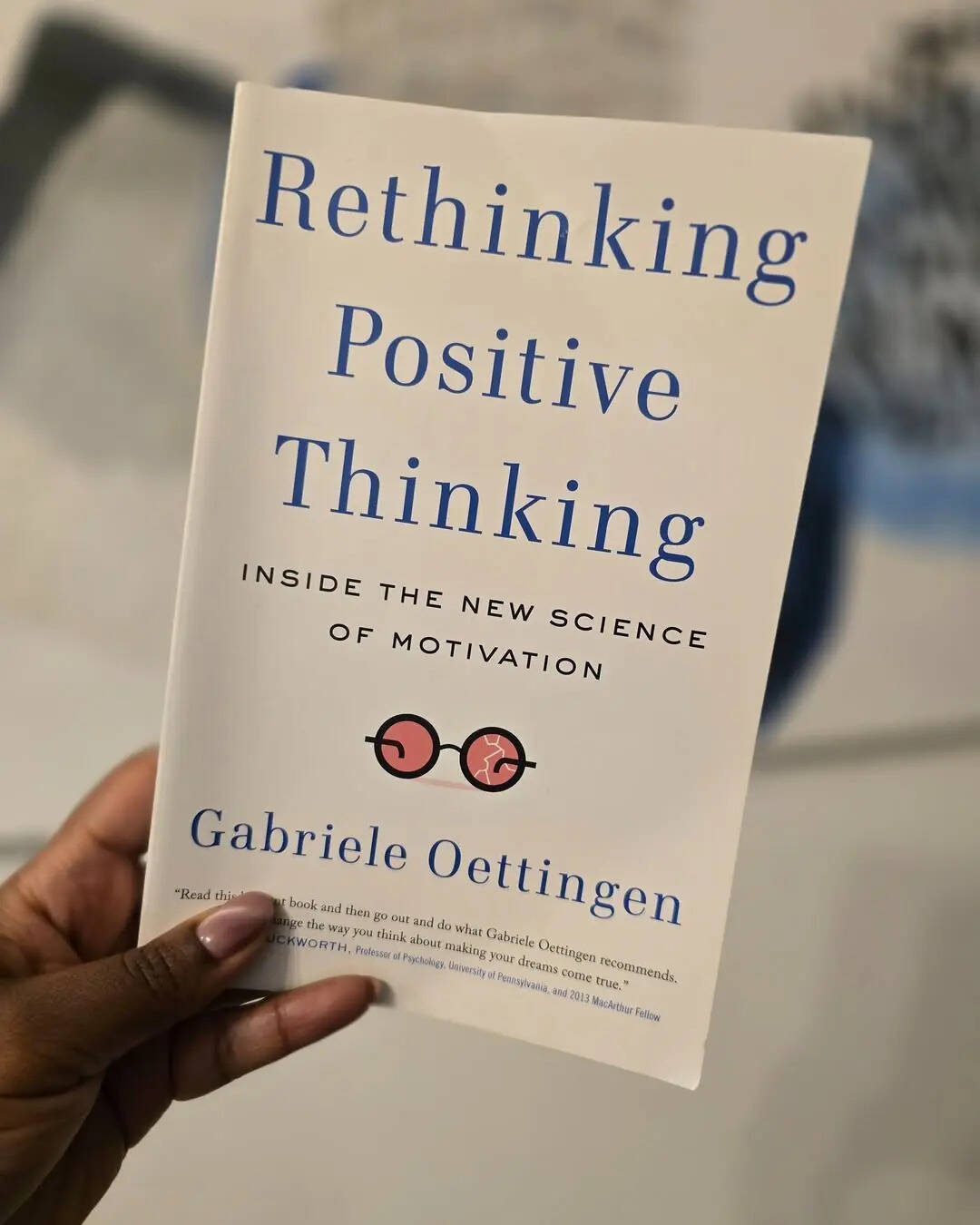 Rethinking Positive Thinking (Picture Credit – Instagram)
Rethinking Positive Thinking (Picture Credit – Instagram)
2. The Art of Choosing by Sheena Iyengar
Iyengar, who once conducted a study involving 600 jams, examines the complex psychology behind our choices. Her findings show that too much choice can be paralysing and that culture, context, and even language shape our decisions in ways we often overlook. This book opened my eyes to how Western ideas about individual autonomy aren’t as universal as they seem. After reading it, I began to question whether my decisions were truly my own or had been quietly scripted by societal expectations and subconscious cues.
3. Nudge by Richard H. Thaler and Cass R. Sunstein
This book made me realise how easily our choices are shaped by the environment around us. From cafeteria layouts to retirement savings plans, small design tweaks can steer decisions without us even knowing. The authors call this ‘choice architecture’ — the hidden hand behind how we act. It’s not just about economics, but about ethics, autonomy, and human behaviour. Every time I face a form, a sign-up page, or a policy, I now ask: Who set up this decision, and why?
4. Being Mortal by Atul Gawande
‘Being Mortal’ doesn’t look like a book on decision-making until you realise how few people are prepared for the hardest decisions of all. Gawande, a surgeon, confronts how medicine often prolongs life at the cost of dignity and meaning. His honest exploration of mortality made me rethink how we approach ageing, death, and autonomy. The book doesn’t offer easy answers, but it does pose better questions. It reminded me that end-of-life decisions aren’t medical — they’re deeply human.
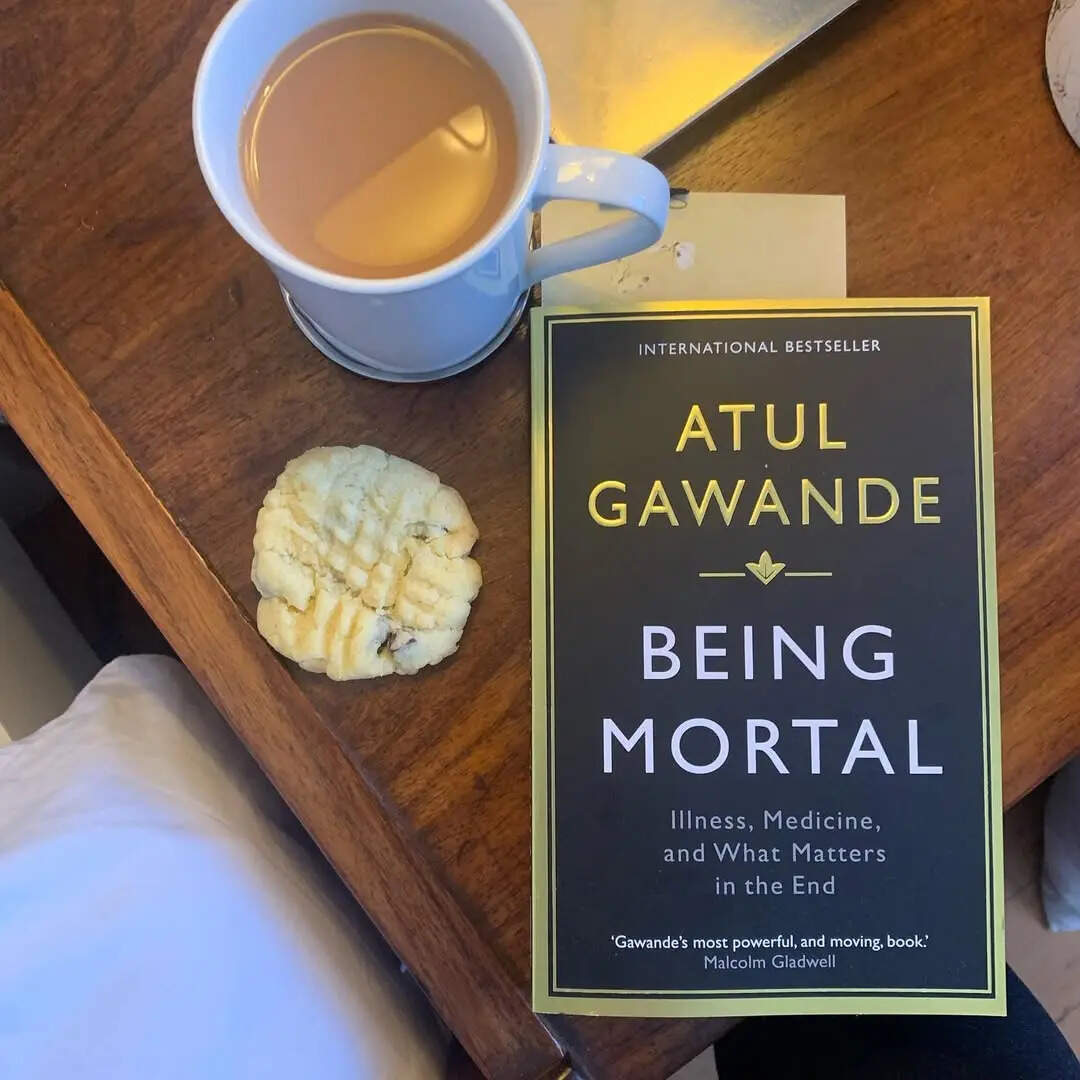 Being Mortal (Picture Credit – Instagram)
Being Mortal (Picture Credit – Instagram)
5. The Undoing Project by Michael Lewis
Michael Lewis tells the story of Daniel Kahneman and Amos Tversky, two psychologists who dismantled the idea of human rationality. Their work on cognitive biases shows how our minds bend reality to fit patterns, stories, and illusions. ‘The Undoing Project’ explains why we misjudge probabilities, make inconsistent decisions, and fall into traps even when we know better. It’s more than a biography — it’s a roadmap through the inner workings of flawed reasoning. Reading it felt like meeting the hidden operators behind my own thoughts.
6. Difficult Conversations by Douglas Stone, Bruce Patton, and Sheila Heen
This book helped me realise that the hardest decisions aren’t about facts — they’re about people, emotion, and meaning. Whether it’s a breakup, a performance review, or family tension, difficult conversations shape our lives. The authors unpack how to handle blame, identity, and intention with clarity and care. It’s not just communication advice; it’s decision-making in emotional territory. Every time I postpone a conversation, I return to this book and find the tools and courage to move forward.
7. Noise: A Flaw in Human Judgment by Daniel Kahneman, Olivier Sibony, and Cass Sunstein
Where ‘Nudge’ looked at intentional design, ‘Noise’ exposes the random errors in our thinking. The same case can yield wildly different outcomes depending on the weather, a judge’s lunch, or a hiring manager’s mood. The book shows how variability, not just bias, undermines fairness and accuracy. Reading it was a wake-up call: I started seeing noise everywhere, especially in hiring, grading, and medical settings. It didn’t just sharpen my decisions — it made me more sceptical of others’ too.
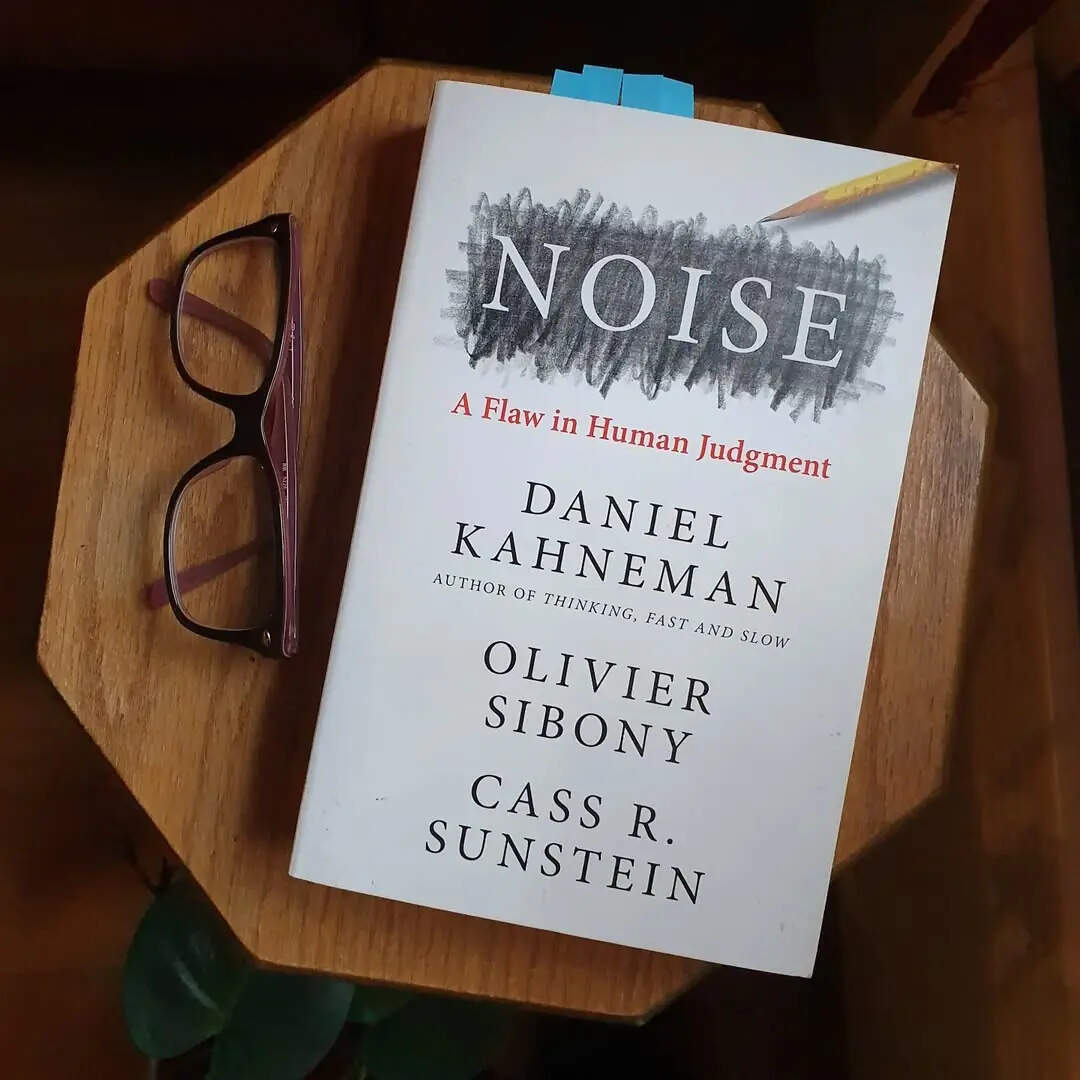 Noise (Picture Credit – Instagram)
Noise (Picture Credit – Instagram)
8. An Immense World by Ed Yong
This book altered how I perceive the world and, by extension, how I make decisions within it. Yong explores animal senses so different from ours that they redefine what perception even means. From magnetic fields to ultraviolet vision, nature is a symphony we barely hear. It’s not a traditional decision-making book, but it shook my confidence in human-centric thinking. When your senses are just one narrow slice of reality, how can your choices ever be fully informed?
9. The Invisible Gorilla by Christopher Chabris and Daniel Simons
Based on the famous experiment where people miss a gorilla walking through a basketball game, this book dives into cognitive blindness. It reveals how overconfidence, inattentional blindness, and memory illusions distort our decision-making. We think we’re seeing clearly, but we’re not. Chabris and Simons argue that awareness of our limits is the only true safeguard. This book didn’t just change how I observe the world; it taught me to mistrust my certainty, and that’s a gift in every crucial moment.
10. How to Decide by Annie Duke
A former professional poker player, Duke approaches decision-making with probabilistic thinking. She emphasises separating decision quality from outcomes; a bad result doesn’t always mean a bad decision. The book offers practical frameworks like decision trees and pre-mortems without ever feeling clinical. I’ve used her methods to rethink everything from career paths to friendships. It’s not about perfect decisions but better processes. And for once, the ‘how’ matters more than the ‘what.’ Duke doesn’t tell you what to choose; she shows you how to choose better.
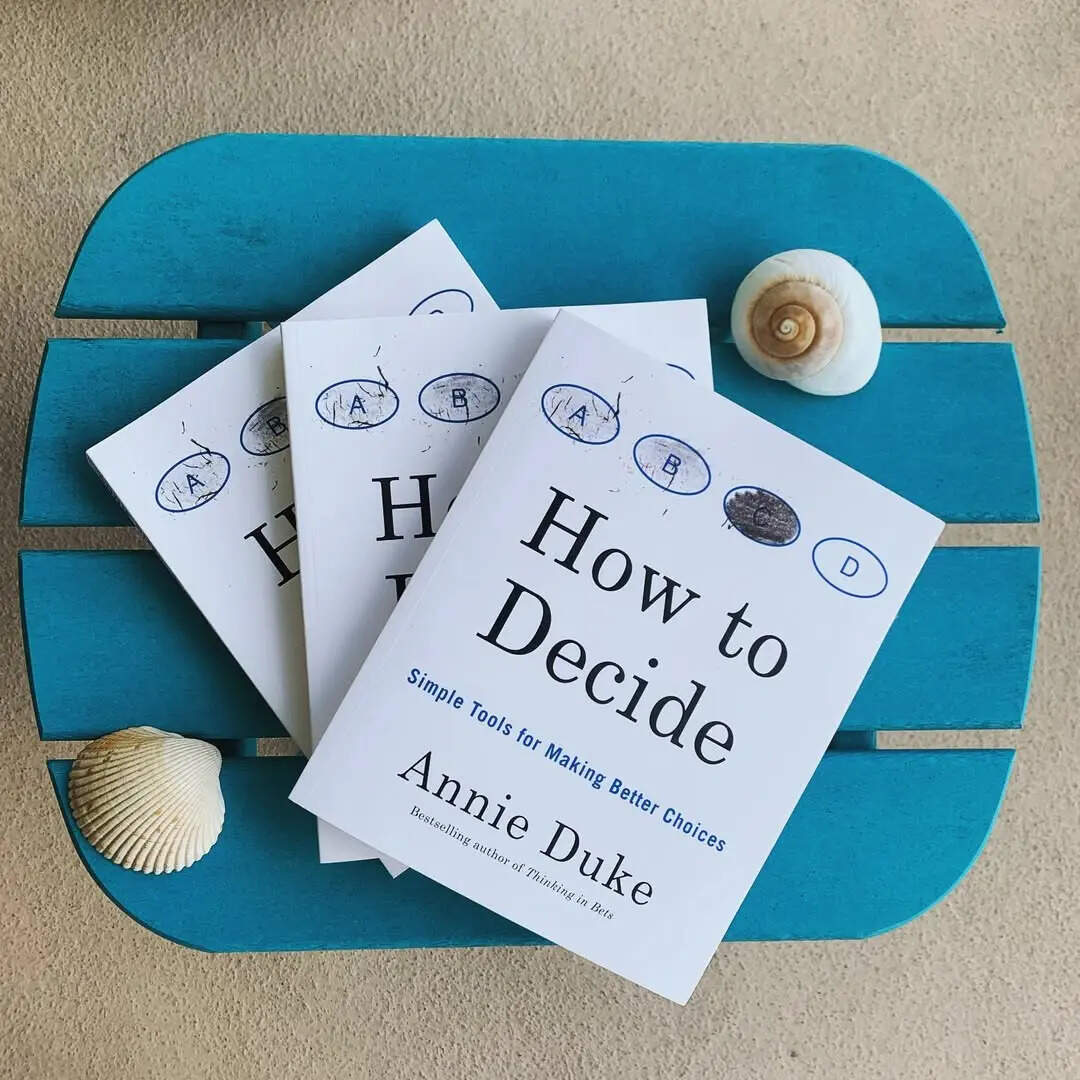 How to Decide (Picture Credit – Instagram)
How to Decide (Picture Credit – Instagram)
Every one of these books added friction to the way I think — the good kind. They nudged me away from automatic reactions and toward intentional reflection. The act of deciding now feels less like a reflex and more like a responsibility. What changed most was not my outcomes, but my process. I stopped chasing certainty and started seeking clarity. If you’ve ever felt paralysed by a choice or puzzled by your own preferences, these books won’t give you shortcuts; they’ll give you a sharper lens.